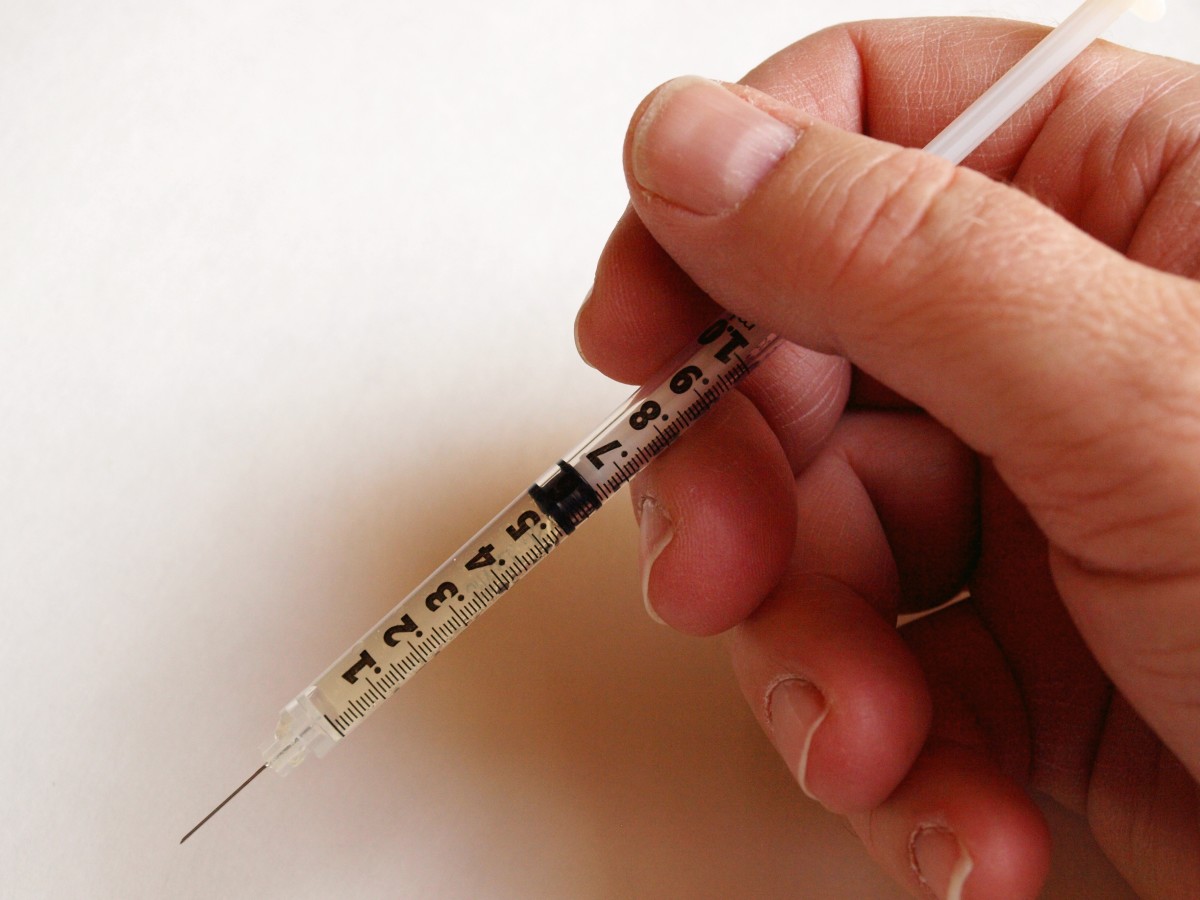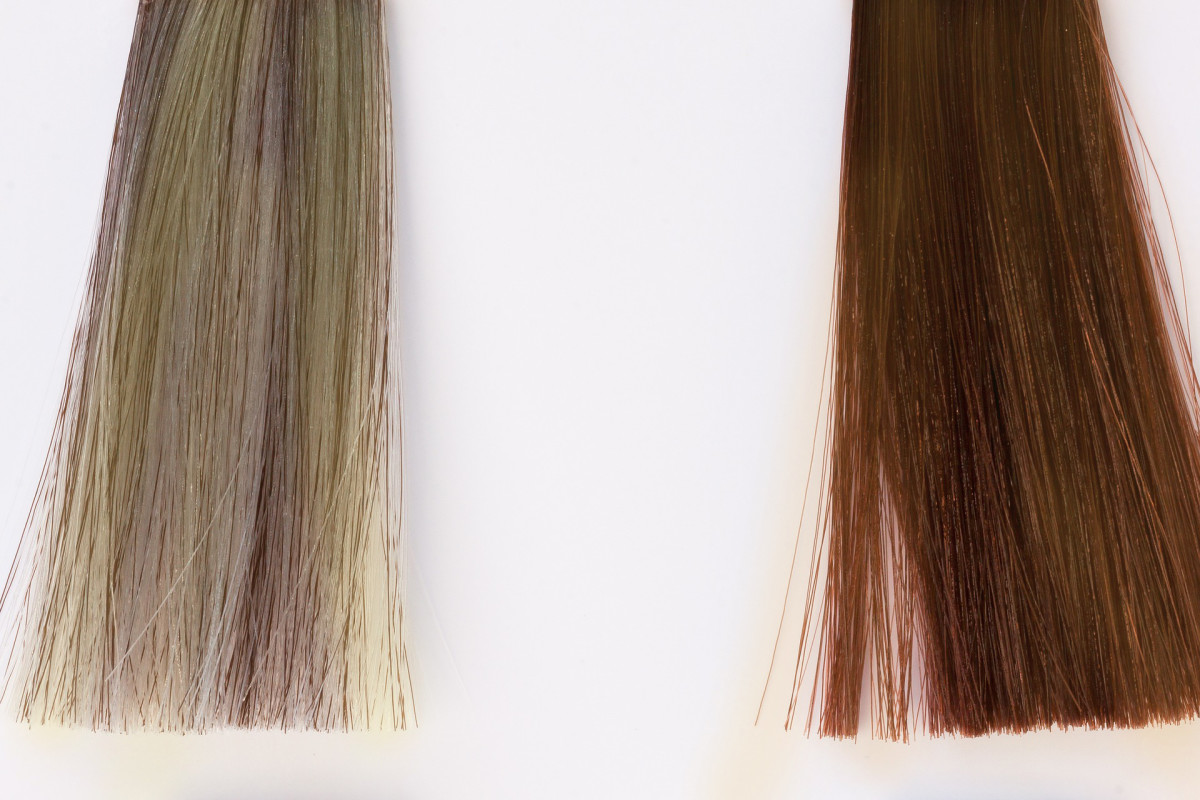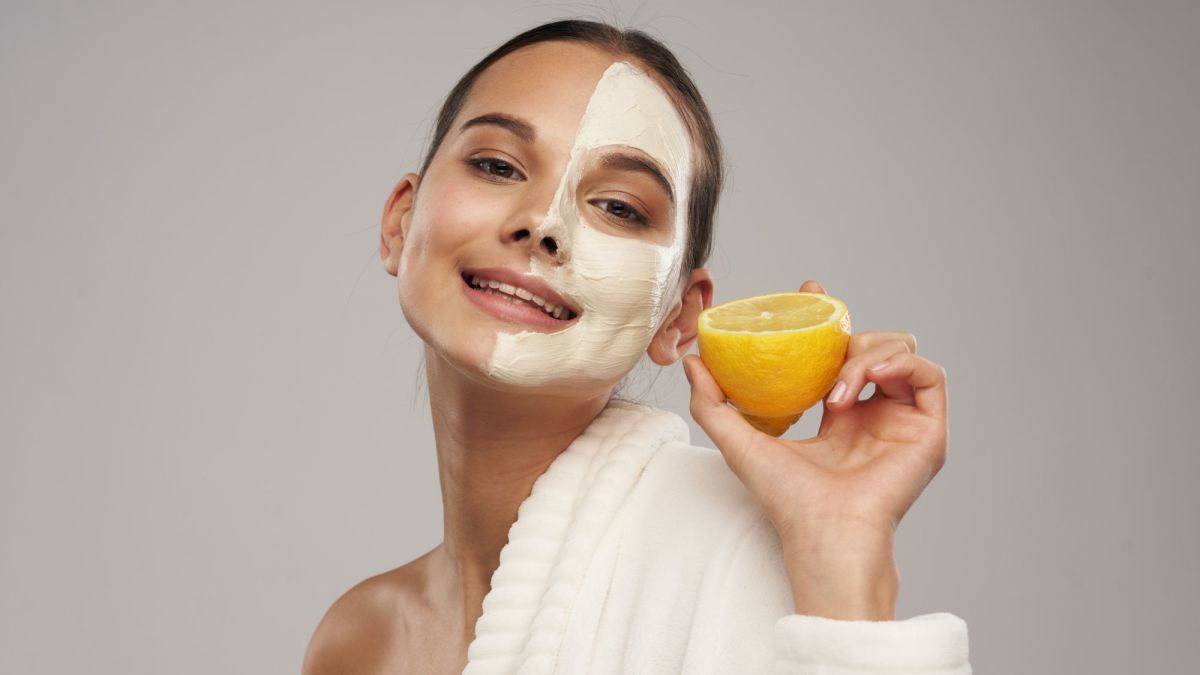How To Prevent Gray Hair
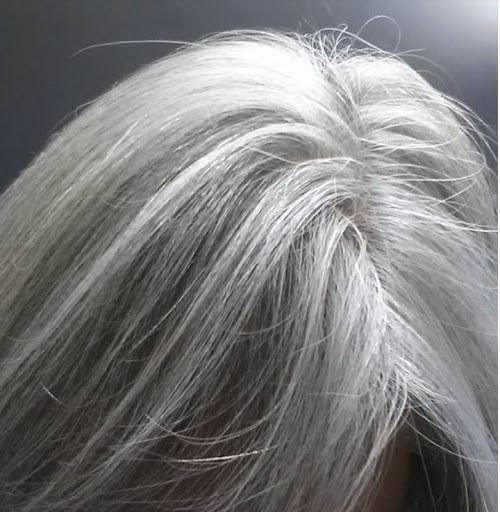
Facts
|
|---|
Scientists identified the gene for gray hair. IRF4 variant which is associated with lighter-colored and blonde hair. It accounts for 30 percent of gray hair.
|
Gray is more common in people of European origin.
|
White or gray hair is often associated with old age. However, if you noticed them in your early 30s or even 20s, it is something that you might be concerned about. Gray hair and white hair are often the result of your hair losing its natural color which is also called “pigment.” In most cases, when the hair starts losing its pigment, it will turn gray. A strand of hair that has no pigment present will turn white as it grows. Researchers have yet to discover the exact cause behind this loss of pigmentation that results in hair turning white or gray. This article discusses what can be done and what kind of food to eat to reverse or slow down both white and gray hair.
What Causes Gray Hair?
Hair growth happens once the old cells are pushed out by the hair follicles due to the generation of new cells. This happens in three stages namely growth, halt and rest. In the rest period, the hair reaches it lifespan and begins to fall out. A new strand of hair starts to grow and replaces the old hair. Melanin is responsible to give your hair its natural color, which is formed by melanocytes. Pigmentation in hair is different than the skin, which in most cases is not continuous. In the growth phase, the hair is actively undergoing the pigmentation process. During the halt period, pigmentation tends to slow down and will become absent during the rest period. As we age, the quantity of pigment that’s injected into every strand of hair gets reduced, resulting it to turn gray and eventually white. In the sections that follow we will discuss how to prevent or reduce the process of graying hair.
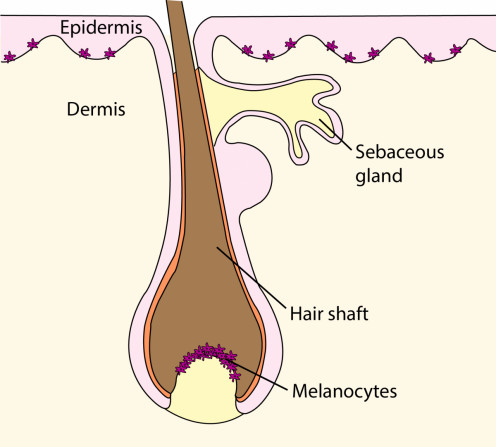
Factors Attributed To Premature Graying
Premature graying is attributed to the following factors:
1. Genetic Traits
Changes in hair color usually occur naturally as we age, eventually turning our hair gray and then white. Genes play a major part in determining at what age your hair starts to lose its pigment. It varies between individuals in that some would start losing their hair pigment before they turn 20 whilst others at a later age in their 40s or 50s.
2. Melanin Deficiency
Lack of melanin is the leading cause of premature graying. Melanin is formed by melanocyte, a skin cell that produces and distributes skin darkening pigment. The production of melanin depends on nutrition and supplements it receives from the body. Lack of certain type of nutrition and supplements can cause melanin to fall below the level it’s supposed to have to produce pigment.
3. Imbalance in Hormones
There is evidence that changes in hormone levels particularly testosterone, progesterone and estrogen can cause hair to turn gray or white. In women, the ovaries and adrenals are the key factors in producing these hormones. Not having enough estrogen levels can lead to thinning, dull and graying hair. If your hair is changing, it’s most probably because your hormones are also changing.
4. Medical Conditions
It is common to get gray hair as we age. However, sometimes graying hair may indicate a health issue, especially if it occurs at a young age. Vitiligo, thyroid disease, alopecia areata, pernicious anemia and tuberous sclerosis are some of the medical conditions that can cause the hair to turn gray.
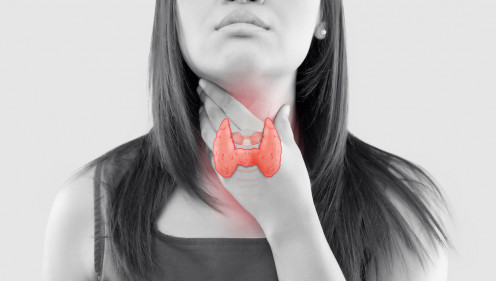
5. Vitamin and Mineral Deficiency
Deficiency in vitamin B12 is one of the most common causes of premature gray hair. The best sources of vitamin B12 are foods from an animal origin. It is important for the production of red blood cells as well as keeping the nerve healthy. A study in 2015 suggests that nutritional deficiency such as vitamin B12 can affect pigmentation of the hair. Lack of folic acid, iron and biotin can also contribute to graying hair.
6. Stress
A group of Harvard researchers discovered that stress activates nerves that cause permanent damage to pigment stem cells around the hair follicles. The preliminary study suggests that stress affects the whole body and can attack the pigment-producing cells. There are many other underlying factors such as the stress hormone cortisol and sympathetic nervous system. Stress hormone can cause the migration of pigment-producing cells from the hair follicles. As a result, your hair pigments become depleted causing the hair to turn gray. The study also raises a question whether stress-related graying is similar to aging.
7. Use of Chemicals
It is a known fact that chemicals present in shampoo, hair dyes and soaps. Some of our hair care products contain harmful chemicals such as sodium lauryl sulfate, parabens, alcohol, artificial color, silicones and mineral oils. Regular use of these harmful chemicals can be damaging to our hair and overall health.
8. Smoking
Research suggests that there is a relationship between the onset of gray hair (before turning 30) and smoking. According to the study, smokers are four times more likely to get gray hair than nonsmokers regardless of their age. It is suggested that smoking causes damage to the pigment in each hair follicle. The study also linked smoking to hair loss.
9. Hydrogen Peroxide Buildup
A study in 2009 found that buildup of hydrogen peroxide in the hair particles is responsible for graying hair. Hydrogen peroxide, a chemical found in commercial hair dye is well known for its bleaching effect. It is also a chemical that is naturally produced by our hair cells in small amounts. As we get older, an enzyme called catalase that breaks down hydrogen peroxide begins to slow down. As a result, hydrogen peroxide starts to accumulate in the hair and bleaches out the hair pigment.

Can You Reverse Gray Hair?
It all depends on the causes of graying. If genetics and age-related graying are the main cause, there isn’t much that can be done to reverse gray hair. If the cause of gray hair is due to medical conditions, consult your doctor to discuss what can be done to treat graying hair. Once treated, it may help restore pigment to your hair. However, this is not always guaranteed. It is possible to preserve the rest of your hair color and delay the graying process for a little longer by making some changes to your lifestyle. Hormone therapy treatment could sometimes promote re-pigmentation. Another way is to try to consume more of vitamin B12 related food such as beef, lamb, salmon, tuna, yogurt and milk. If you are a vegetarian, you may want to add vitamin B12 supplements in your diet.
Tips For Reducing or Delaying Gray Hair
1. Increase Intake of Vitamin B12
Although there is no scientific study that proves that certain vitamins or herbs can prevent or reverse gray hair, it’s worth a try and at the very least taking vitamins will improve our overall health.
Vitamin B12 contributes to the overall function of the body. It controls the metabolism and helps the proper functioning of our central nervous system. It contributes to the production of red blood cell which is responsible to carry oxygen to the body. It is also essential for the production of melanocyte cells which are known for their role in hair pigmentation. Our body is unable to produce vitamin B12. This vitamin is also not produced by plants. It is available in meat, poultry, dairy products and eggs. Those who lack vitamin B12 often suffer from hair loss. Strict vegetarians are more prone to develop vitamin B12 deficiency unless they take vitamin supplements. I have been taking vitamin B12 for the past two months and to my surprise, I started noticing some fine baby hair on the top of my head. It is too early to tell whether taking vitamin B12 can reverse my gray hair. One thing I did notice is that the new baby hair are not gray. They are my natural hair color.
2. Watch Thyroid Levels
Thyroid’s main function is to control how your body uses energy from food. In other words, it controls the metabolism. Metabolism affects your body’s heartbeat, temperature and burning of calories. If thyroid hormone is lacking, functions and processes of the body will slow down. An underactive thyroid can result in premature gray hair. Hence, it is important to watch your thyroid levels to make sure it is not causing your hair losing its pigment. Hypothyroidism is a condition in which your thyroid gland does not produce certain important hormones. Prolonged hypothyroidism may lead to low body temperature, anemia and heart failure. When this happense, you will need to take thyroid hormones for a long time. Certain foods like fatty meat and cruciferous vegetables can interfere with the thyroid hormone production. Keep your thyroid levels in check by reducing foods that can cause thyroid problem.
3. Quit Smoking
It is a well-known fact that smoking increases the risks of heart disease and lung cancer. The long term effect can go beyond heart and lung problems. There is a significant relation between onset of gray hair and cigarette smoking. Smoking can affect the hair because it restricts blood flow to the hair follicles and causes loss of hair. In addition, the toxins in cigarettes can be damaging to your body parts including pigment in the hair follicles which will cause the hair to turn gray.
4. Foods To Help Reduce Graying Hair
Lack of vitamin B12 in your diet can contribute to graying hair. Vitamin B12 can be obtained naturally from eggs, seafood, beef, pork, lamb and dairy products such as milk, yogurt and cheese. Other foods that can help with hair growth and delay premature graying are oranges, walnuts, dark chocolate, spinach, beans, carrots, meat liver, berries and curry leaves.

Can White Hair Turn Dark Again?
It is possible that graying hair can be reversed and white hair can turn dark with the right diagnosis and treatments. However, there isn’t much that can be done if the problem is genetic or age-related. With good hair care and balanced diet, it is possible to slow down the process of graying and white hair. Graying hair is a natural process especially if it’s age-related where the hair starts to lose its pigment. It is your choice whether you want to use hair coloring to cover the gray hair or to display it in its natural form. The consistent practice and taking supplements can help slow down and reverse gray hair. In time, they may work gradually and with consistency, you will start seeing results.
My Hair Experience
Have you ever experienced your hair turned gray at one point then back to its natural color?
Foods That Can Keep Gray Hair Away
This content is accurate and true to the best of the author’s knowledge and does not substitute for diagnosis, prognosis, treatment, prescription, and/or dietary advice from a licensed health professional. Drugs, supplements, and natural remedies may have dangerous side effects. If pregnant or nursing, consult with a qualified provider on an individual basis. Seek immediate help if you are experiencing a medical emergency.
© 2020 ma45frost

